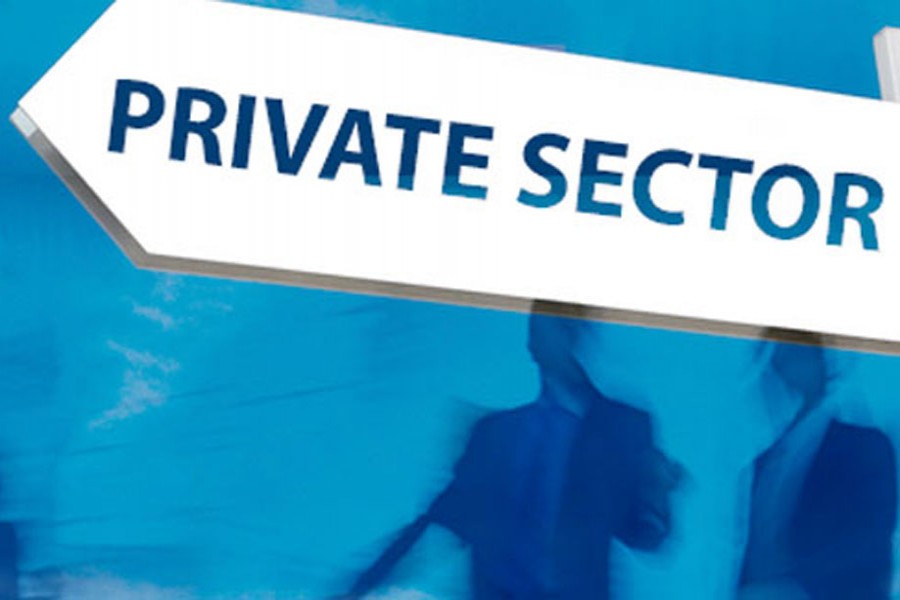The government has set an ambitious goal for growth of private investment. The question is whether such goal is achievable or not. Analysts say the goal of doubling private investment as a percentage of gross domestic product (GDP) in fiscal year 2020-21 is unrealistic. The government seeks to raise private investment to GDP ratio to 25.3 per cent from the outgoing fiscal's 12.7 per cent trajectory.
Taking the coronavirus effects into consideration, the government has slashed the investment-GDP ratio estimates to 12.7 per cent for FY2020 from its earlier projection of 24.2 per cent. Analysts say the new private investment target in the next fiscal is like daydreaming when the global economy is set to dive into the deepest recession after the World War II.
Still, the finance minister remains upbeat about a higher private investment growth in the next fiscal banking onseveral fiscal measures and lots of incentives. He hopes that the Covid-19 would bring considerable transformation in the global trade and business scenario from which Bangladesh would be able to grab some shares in investments.
The government in its new target said the overall investment is expected to rise at 33.5 per cent of the total GDP in FY2021 from that of 20.8 per cent in FY2020. The public investment-GDP ratio in the next fiscal has been set at 8.1 per cent of FY2020.
In normal years in the past, the private investment-GDP ratio was not noticed to grow by more than 1.5 percentage points. It is very unrealistic that the government is expecting to double private investment growth within a year.
If the health situation becomes normal in the next financial year, the private sector's replacement investment will need to be almost doubled from the government's revised target of 12.7 per cent this year. In addition, it will require boosting the investment-GDP ratio by 1.8 percentage points within a single year. It is almost impossible for a country like Bangladesh, according to analysts. Given the virus fallout, they say, it will take some time to bring back confidence among the foreign and local investors.
According to the analysis, if the government wants to take the private investment-GDP ratio to 25.3 per cent, the country will require additional Tk 4.25 trillion investments which is 125 per cent higher than the current base.
The existing industries are now unutilised and under-utilised due to the Covid-19 pandemic. It is not known how a new entrepreneur will come up with fresh investments in this situation. After economic recovery, they will first try to use under-utilised and unutilised capacity, they said.
There is a general perception that a lot of FDI will be relocated to Bangladesh. But it is necessary to mention that the global FDI is projected to decline 35 per cent and the domestic corona situation will have an impact on foreign investments too. Foreign investors will not come to Bangladesh for health security reasons for a period even after normalising the situation.
During the present situation, the commercial banks would charge some hidden costs from the borrowers, which will ultimately fail to boost investment. Besides, banks will lose the interest to finance small and medium enterprises as their operating costs are higher. This will also be a big blow to increasing private investments.
Private investments are constrained by a lack of land, reliability of energy supply, poor connectivity, cumbersome regulatory processes as well as regulatory unpredictability, high corporate taxes, limited access to long-term finance and shortage of skills. Without removing the constraints, it will be difficult to achieve a sustained increase in the private investment rate.
Absence of the ease of doing business, cost of financing and lack of quality power supply are the major reasons for slow growth in private investment. These issues need to be addressed speedily.


